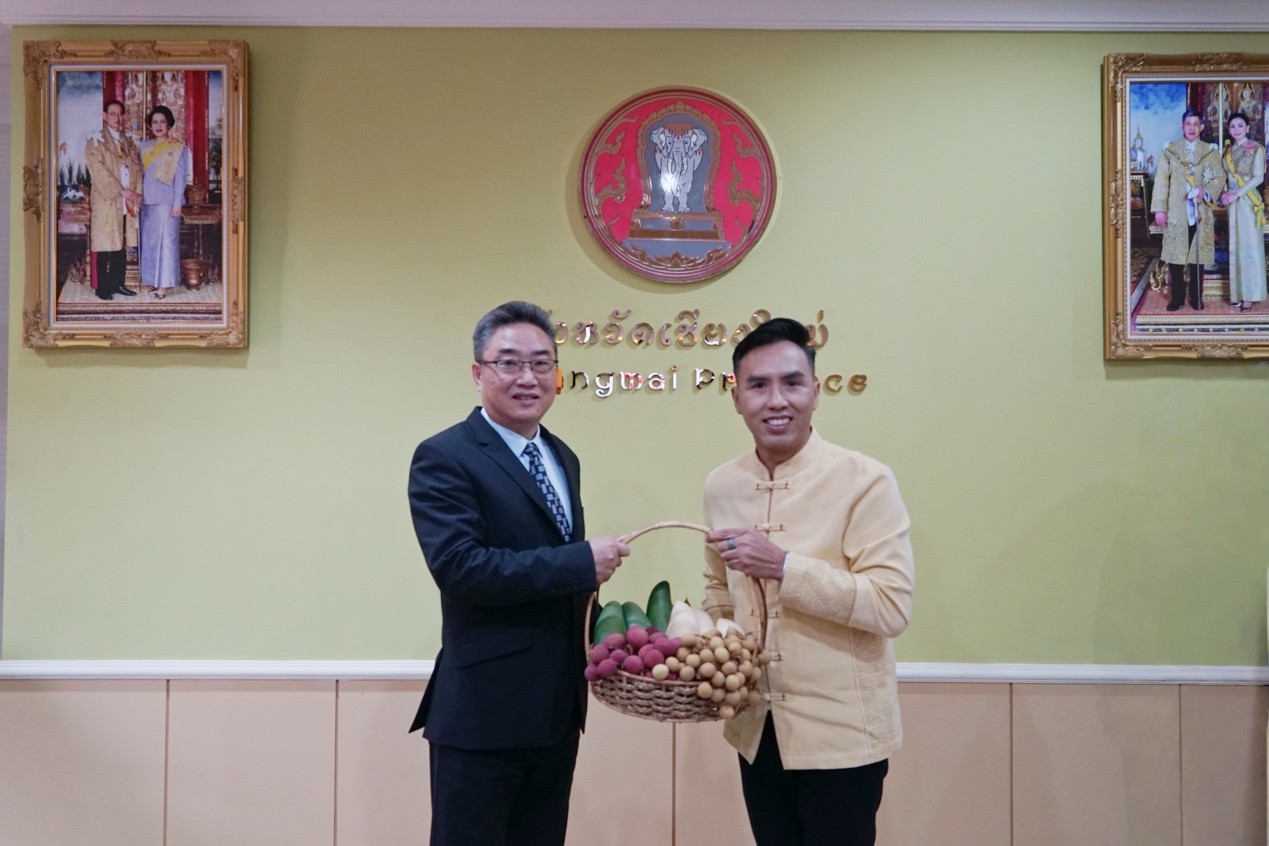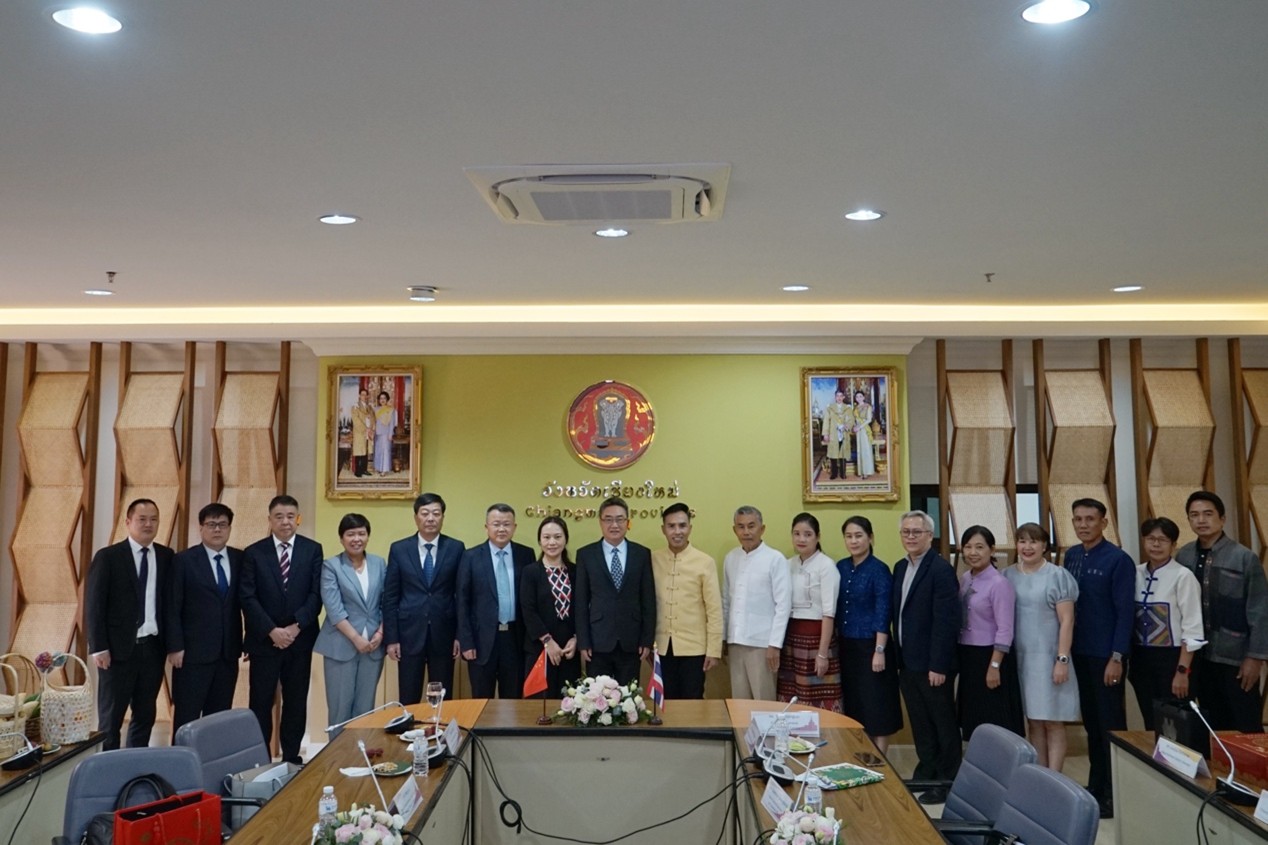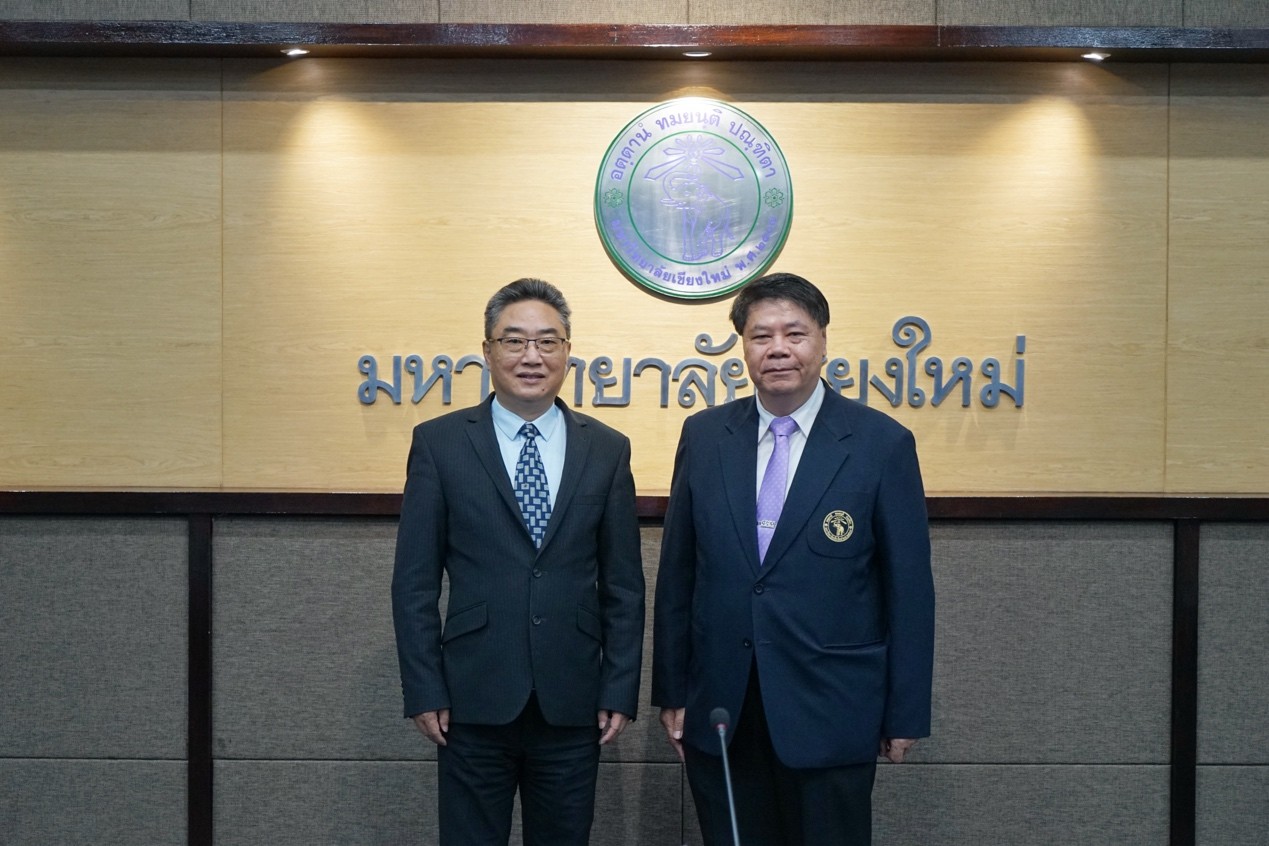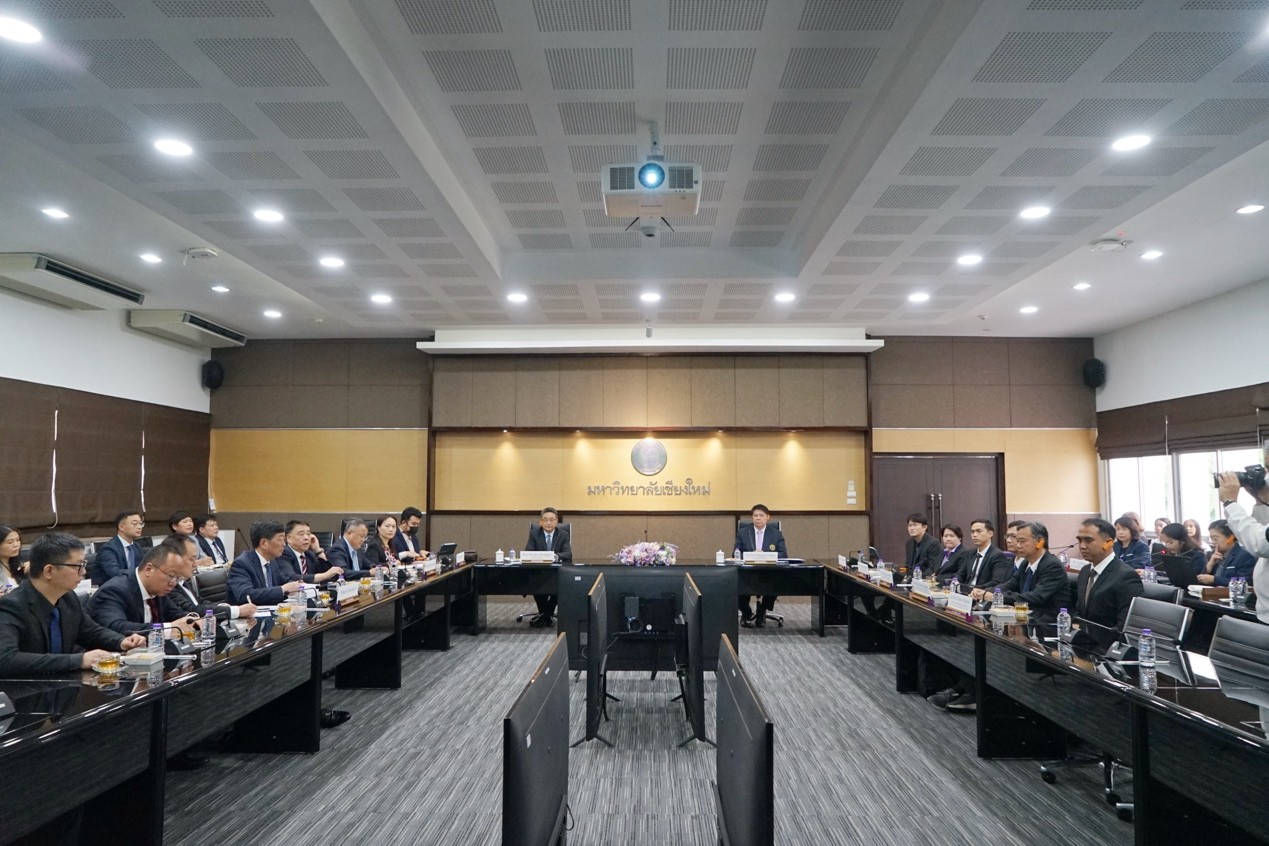On 26 June 2025, Secretary General Shi Zhongjun of the ASEAN-China Centre (ACC), led the Chinese agricultural delegation to Chiang Mai of Thailand, where they met with the Chiang Mai Provincial Government and the Chiang Mai University (CMU) respectively to discuss opportunity for agriculture cooperation. The meetings were attended by Vice Governor Wiraphong Rhitrot of Chiang Mai Province; Vice President Dr. Todsaporn Pichaiya of CMU, heads of related governmental departments, and representatives from the university faculties.

SG Shi noted the significance of ASEAN-China relations amid the complex global situation, and reaffirmed the duty of ACC, as the only inter-governmental organization co-founded by 10 ASEAN member states and China, to help channel and promote practical cooperation and people-to-people exchanges across all fields between the two sides. SG Shi specially introduced the efforts of the Centre in promoting agricultural cooperation. Noting Chiang Mai as an economic hub in Northern Thailand with rich agricultural resources, SG Shi encourage the province to align demands with the Chinese delegation, and promote potential cooperation in fields like agricultural technology, machinery, crop yield enhancement, technological innovation, and talent training, thereby enhancing the whole-industry-chain of agricultural cooperation between China and ASEAN for the benefit of the two peoples and the region.

Vice Governor Wiraphong emphasized that tourism and agriculture are twin pillars of its economy. Stressing the close relationship between Chiang Mai and China and the huge potential for cooperation between the two sides, he expressed the desire to leverage the ACC platform to establish connections with more Chinese institutions and enterprises, and enhance cooperation in four prioritized areas of people-to-people exchanges, agriculture, trade and investment, and education. Vice President Todsaporn commended the vital role of ACC and affirmed that, based on the current cooperative partnerships with China, the CMU aims to deepen cooperation with more Chinese institutions and serve as a communication link between Chinese partners and local farmers.

Attendees also exchanged opinions and suggestions for cooperation in specific areas such as standards for agricultural exports, irrigation, clean energy, climate change, haze control, etc.
